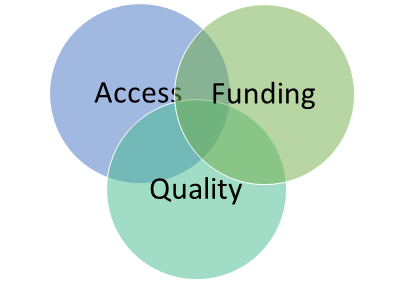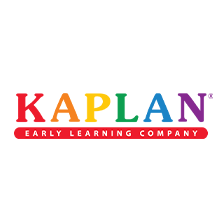Advocacy
The N4C advocacy priorities focus on three important dimensions of early childhood care and education at our two and four year institutions of higher education.
- Access – working on behalf of campus communities to encourage higher education institutions to provide program facilities and capacity that adequately address the need for child care and quality early childhood education.
- Funding – seek development of and access to funding mechanisms that facilitate affordable care and education for student parents, campus faculty and staff.
- Quality – ensuring that campus children’s centers provide the highest quality early care and education so that their use as resources for professional preparation programs and researchers will promote best practice and improve the lives of children and families.
We realize that advocacy is more effective with partners who can pool resources and speak with a stronger voice. Organizations N4C is actively working on development of collaborations with other groups that share commitment to our priorities

Introduction
High quality early care and education programs are essential for institutions of higher education. They are a proven component of student parent success. They enable colleges and universities to recruit and retain quality faculty and staff. As a key resource to departments of education, they help education students learn about developmentally appropriate practice. And, they provide a valuable venue for child development and other research. Understanding this, it is the policy of N4C to support activities and initiatives that:
1. Support funding for early childhood programs such as:
- Increases in funding for and insure the smooth operation of the US Department of Education’ Child Care Access CCAMPIS Means Parents in School grant program
- Promotion and support of the establishment, maintenance and expansion of high quality campus based child care and early education programs
- Campaigns that establish teacher support such as Worthy Wages.
- Appropriate projects that make campus based children’s programs more affordable to parents.
2. Promote Quality Development by:
- Insuring that campus child care is an integral part of higher education systems
- Enabling campus child care programs to meet the educational, research and service needs of the institution and community at large.
- Making clear that child care and developmentally appropriate early childhood education are inseparable in all quality programs for young children
- Encouraging staff stabilization by reducing turnover to a minimum
- Compensating early childhood teachers and other employees adequately in terms of salary and benefits.
3. Promote Diversity by:
- Allowing for a wide variety of models and approaches to encourage diversity and the reflection of ethnicity, different cultures, and different languages.
- Making clear that diversity is essential to quality education and professional excellence
- Representing the interests of all children and families on campus to the broader educational and social arena.
|




